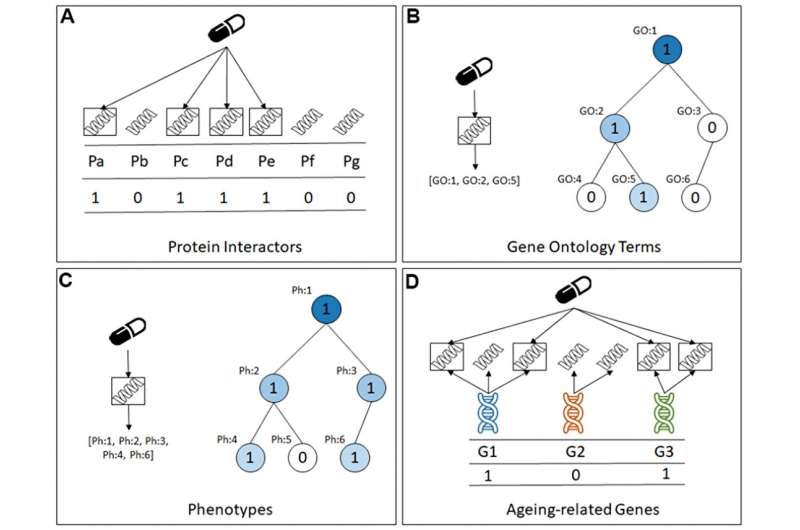This article has been reviewed according to Science X's editorial process and policies. Editors have highlighted the following attributes while ensuring the content's credibility:
fact-checked
proofread
Predicting lifespan-extending chemical compounds for C. elegans with machine learning

A new research paper was published in Aging titled "Predicting lifespan-extending chemical compounds for C. elegans with machine learning and biologically interpretable features."
Recently, there has been a growing interest in the development of pharmacological interventions targeting aging, as well as in the use of machine learning for analyzing aging-related data. In this new study, researchers Caio Ribeiro, Christopher K. Farmer, João Pedro de Magalhães, and Alex A. Freitas from the University of Kent and University of Birmingham use machine learning methods to analyze data from DrugAge, a database of chemical compounds (including drugs) modulating lifespan in model organisms.
"To this end, we created four types of datasets for predicting whether or not a compound extends the lifespan of C. elegans (the most frequent model organism in DrugAge), using four different types of predictive biological features, based on: compound-protein interactions, interactions between compounds and proteins encoded by aging-related genes, and two types of terms annotated for proteins targeted by the compounds, namely Gene Ontology (GO) terms and physiology terms from the WormBase's Phenotype Ontology," state the study authors.
To analyze these datasets, the researchers used a combination of feature selection methods in a data pre-processing phase and the well-established random forest algorithm for learning predictive models from the selected features. In addition, they interpreted the most important features in the two best models in light of the biology of aging.
One noteworthy feature was the GO term "Glutathione metabolic process," which plays an important role in cellular redox homeostasis and detoxification. The team also predicted the most promising novel compounds for extending lifespan from a list of previously unlabeled compounds. These include nitroprusside, which is used as an antihypertensive medication.
"Overall, our work opens avenues for future work in employing machine learning to predict novel life-extending compounds," the researchers conclude.
More information: Caio Ribeiro et al, Predicting lifespan-extending chemical compounds for C. elegans with machine learning and biologically interpretable features, Aging (2023). DOI: 10.18632/aging.204866




















